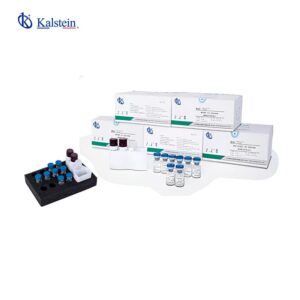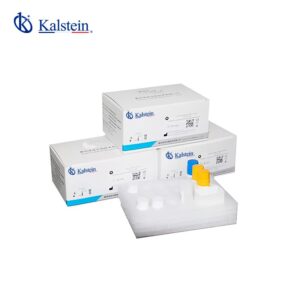Description
The Hepatic Fibrosis Test models YRA317 and YRA321 have become essential tools in modern medicine. These tests are meticulously designed to detect early signs of liver fibrosis, which is crucial given that early-stage hepatic fibrosis can be fully reversed, unlike cirrhosis, a more severe condition. By facilitating early detection, these tests empower healthcare professionals to take timely action to reverse or delay fibrosis progression, which significantly enhances patients’ quality of life and prognosis. Compatible with Chemiluminescence Immunoassay Analyzers YR06389 and YR06390, these tests integrate seamlessly into existing medical diagnostic processes.
Market Price
The Hepatic Fibrosis Test generally ranges in price within the market, though the precise cost may vary depending on factors such as supplier and region. Typically, these tests are available within a range that ensures accessibility for medical facilities seeking precision and reliability in liver disease diagnostics. To get an accurate and customized quote, interested buyers are encouraged to utilize the automated quote system available through Kalstein Plus.
Frequently Asked Questions
What is the primary use of the Hepatic Fibrosis Test? The test is used for the early detection and monitoring of liver fibrosis, allowing for early intervention and potentially reversible treatments.
How is the test conducted? The Hepatic Fibrosis Test is performed using a chemiluminescence immunoassay, a method known for its sensitivity and specificity in detecting relevant biomarkers.
Can these tests be used in any laboratory setting? Yes, provided the laboratory is equipped with compatible Chemiluminescence Immunoassay Analyzers, specifically models YR06389 and YR06390.
Pros and Cons
One of the key advantages of the Hepatic Fibrosis Test is its ability to detect liver fibrosis at an early, more manageable stage, thereby improving clinical outcomes. Additionally, its compatibility with advanced analyzers bolsters its utility in modern labs. However, potential users may need to consider the cost of acquiring compatible analyzers if not already in possession, which could add to initial setup costs.
Product Use in the Field
In practical applications, the Hepatic Fibrosis Test is employed in both hospital and clinical laboratory settings to screen patients at risk of liver disease or to monitor the progression of known hepatic conditions. The test’s accuracy helps healthcare providers develop personalized treatment plans and monitor the effectiveness of therapeutic interventions.
Recommendations
For optimal use of the Hepatic Fibrosis Test, it is advised to ensure that the storage conditions, specifically maintaining a temperature between 2-8°C, are strictly adhered to, ensuring test integrity. Regular calibration using the specified 2/6 point system is also recommended to maintain accuracy. Users should also consider periodic staff training to enhance proficiency in test handling and result interpretation.
Features
- Early detection capabilities for effective intervention.
- Seamless compatibility with Chemiluminescence Immunoassay Analyzers YR06389 and YR06390.
- Robust and reliable design ensuring consistent performance.
- Certified under CE, ISO13485, and FSC standards.
Technical Specifications
| Model | YRA317 | YRA318 | YRA319 | YRA320 | YRA321 |
| Tested Parameter | PIIINP | CIV | LN | HA | CG |
| Analysis Mode | CLIA | ||||
| Package Specification | 50T/BOX, | ||||
| Platform | 100T/BOX,24T/BOX, 48T/BOX AP(Alkaline Phosphatase) | ||||
| Storage | 2-8°C | ||||
| Calibration | 2/6 Points | ||||
| Certification | CE, ISO13485,FSC | ||||




